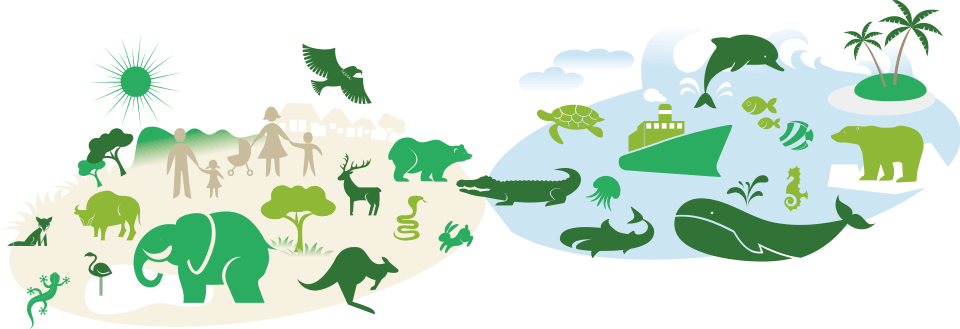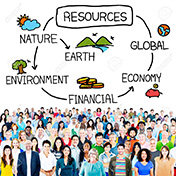Science as the bridge for Sustainable Use
Thirty-seven Japanese leaders and experts in natural resource management and other fields organized GGT in the spring of 1993. They endorsed the world's commitment to sustainable development embodied in Agenda 21 and the 1992 Rio de Janeiro Charter on Environment and Development. At the first GGT general meeting in April 1993,they agreed that through its policies and projects GGT will --
promote the sustainable use of natural resources as a conservation tool.
 |
use the best available scientific information as the basis for conserving and ensuring the rational use of natural resources.
 |
|
Thus, GGT is seeking to ensure that resource uses are the thoughtful and responsible result of reliable data and study. This is not altruism. Ecosystems conservation is critically important to the survival of human beings.
The June 1992 United Nations Conference on Environment and Development served to focus the world's attention on this vital point. As a result of this growing awareness of and appreciation for the goal of sustainable development, both long-standing non-governmental organizations (NGOs) and many new ones are, world-wide, planning and acting to improve the conservation of natural resources. In both developed and developing countries, citizens and governments are -- as GGT is in Japan -- working together to achieve this.
Ecosystem conservation has several aspects. Wise use of natural resources is one. Awareness of the too-rapidly increasing population and the impact this has on all natural resources in another --a problem which manifests itself in virtually every resource use consideration. It is therefore essential that we cooperate to understand how best to balance users and resources.
The principles which we must use to accomplish this -- principles which balance reasonable continuous use with stable long-term productivity in healthy environments -- apply to all living natural resources: fisheries, forests, wildlife, and domestic animals and crops. Although 25 years have passed since its inception, GGT's position as above remains unchanged. By implementing these principles, we and many others seek to improve people's living standards through natural resource management policies which reflect interactions among all species -- including man -- to achieve sustainable ecological balances. |
|
GGT'S RECOMMENDATIONS
ON THE AMENDMENT PROPOSALS
AT THE CITES COP MEETINGS
 |
2022
CoP19 Panama |

PDF(1.3MB) |
 |
2019
CoP18 Geneva |

PDF(1.8MB) |
 |
2016
CoP17 Johannesburg |

PDF(649KB) |
 |
2013
CoP16 Bangkok |

PDF(1.5MB) |
 |
2010
CoP15 Doha |

PDF(976KB) |
 |
2007
CoP14 The Hague |

PDF(128KB) |
 |
2004
CoP13 Bangkok |

PDF(2.8MB) |
 |
2002
CoP12 Santiago |

PDF(71KB) |
 |
2000
CoP11 Gigiri |

PDF(89KB) |
 |
|


















